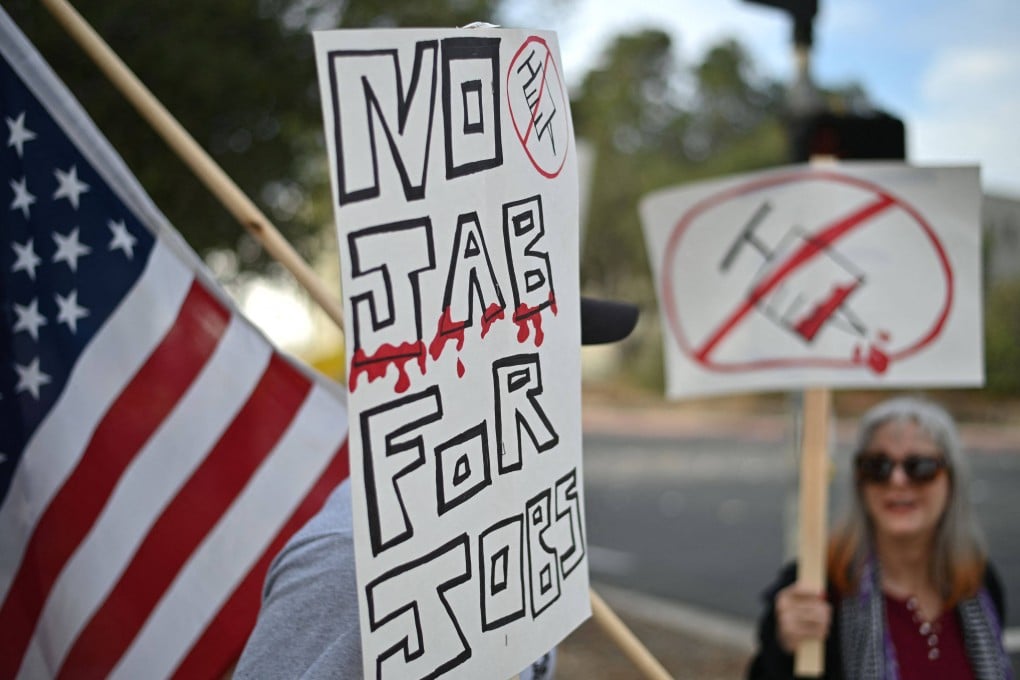My Take | Anti-vaxxers highlight political polarisation in North America
- Divisions in the democratic West long considered sources of strength, except by the Chinese authorities, are now being seen in a new light

Former world chess champion and anti-Putin activist Gary Kasparov once told The New York Times: “China gives the world Covid, the West gives us the vaccine.” Many would dispute his characterisation of the pandemic. More specifically, though, Kasparov missed a subsequent development: the rise of the anti-vax movement against Covid mandates in many Western countries, but especially across North America. Many Westerners take less pride in the West than Kasparov.
Two scientists have won this year’s Nobel medicine prize for their breakthrough work that led to the mRNA Covid vaccine. Western governments were the first to roll it out and mass-distributed it among their populace. But far from cheering or taking pride in the medical advances, vaccine mandates have given rise to an international anti-vax movement that has become a fully fledged political force.
Steve Bannon, an alt-right ideologue and former strategist for ex-US president Donald Trump, and feminist icon Naomi Wolf have become leaders of this movement that has ideologically morphed with the far-right in the US. Anti-vax and anti-government rhetoric share the same narrative template of conspiracy theory: the threat of authoritarian control.
Former Democratic presidential candidate Robert F. Kennedy Jnr who will now run as an independent, was an avowed anti-vaxxer until he declared his presidential ambitions. So now, he is a proponent of “vaccine safety”.
In Canada, tough Covid restrictions and vaccine mandates helped create the trucker convoy movement, a protest group that initially began with cross-border truckers but evolved into a national protest movement. It culminated in the protests in Ottawa and other cities that led to the imposition of a state of emergency in the capital. The protests, while noisy, were generally peaceful, but truckers’ organisers were arrested and put on trial like suspected terrorists, with their financial assets frozen. Their heavy-handed treatment by the federal authorities has polarised Canadian public opinion; their most famous defender has been the world-famous if controversial psychologist Jordan Peterson.
Though the trucker’s convoy has been disbanded, its anti-federal stance on government overreach and alleged power abuse have very much been integrated into the ideologies of Canadian far-right groups.
